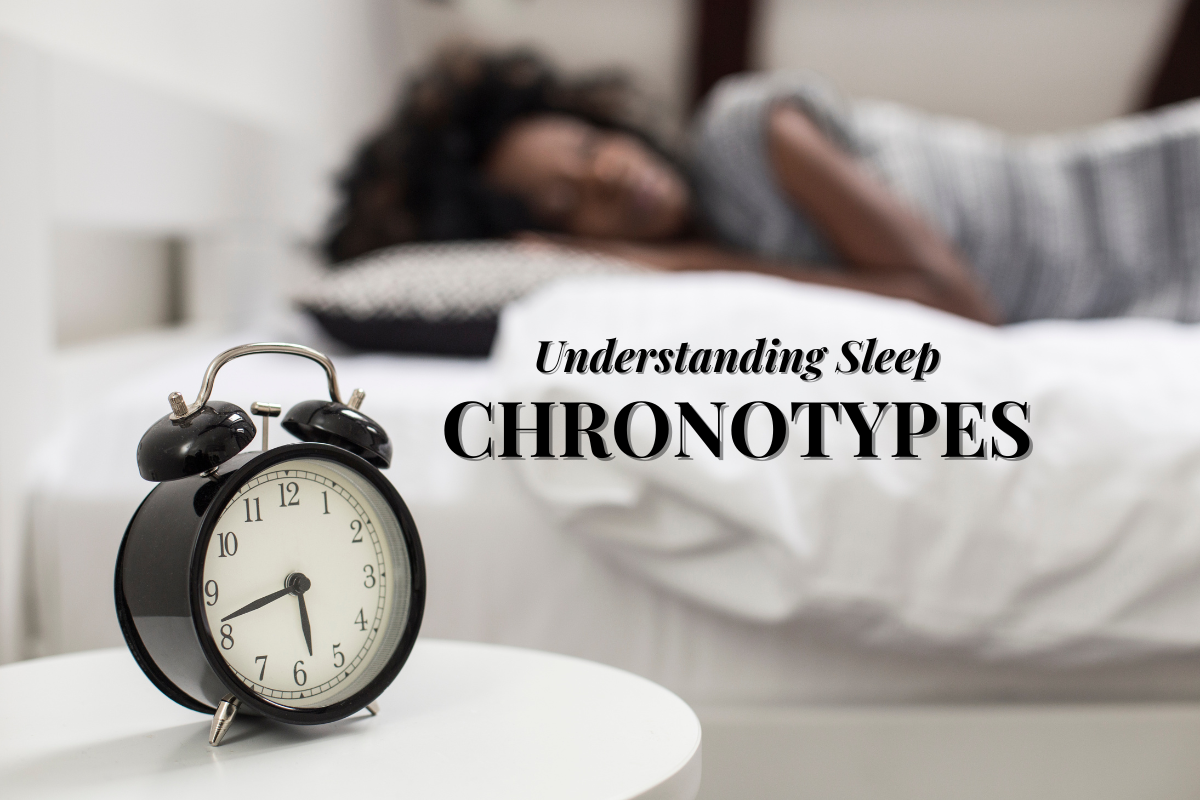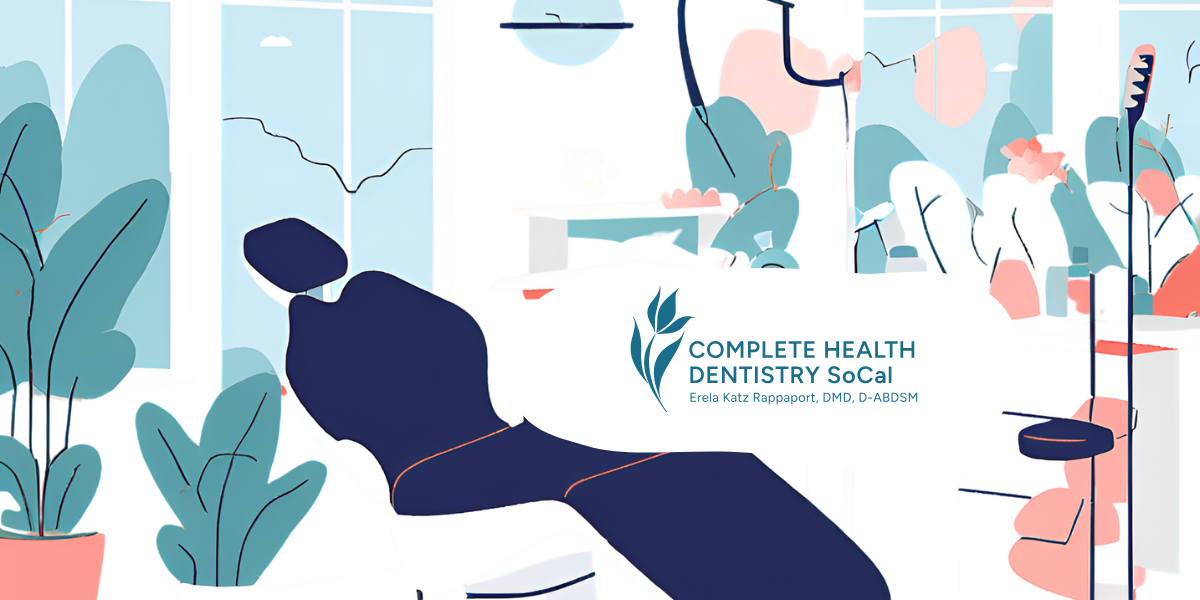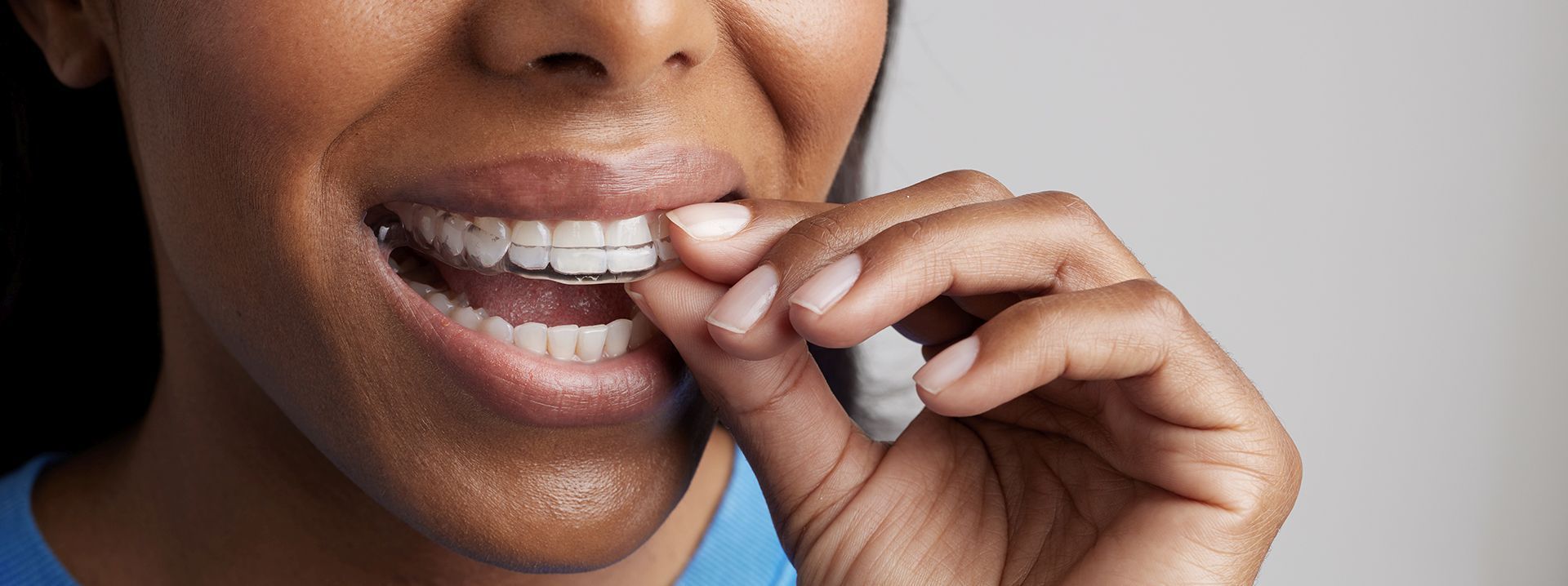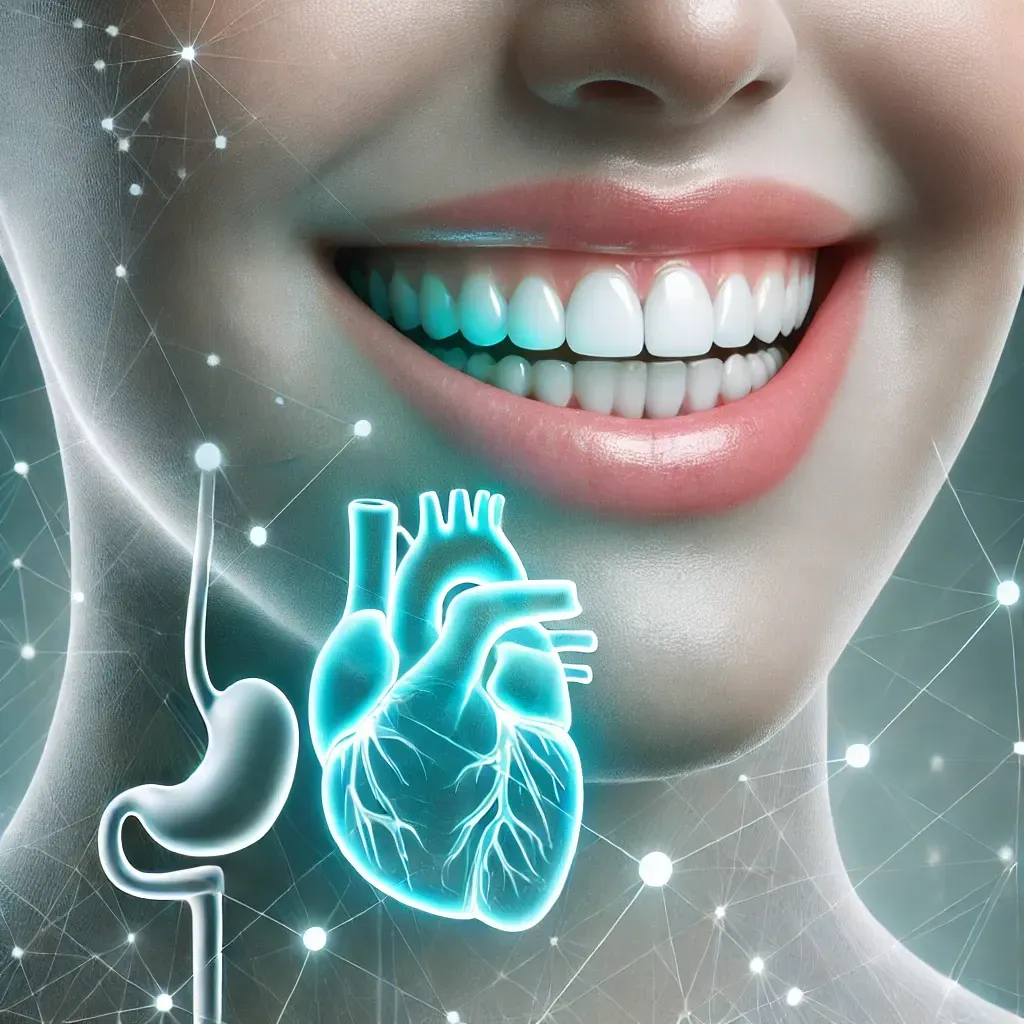That Painful Bump on Your Gums? It Might Be More Serious Than You Think
Have you ever noticed a small, painful bump on your gums and wondered what it might be? It could be more serious than you think. While some might brush it off as a minor annoyance, these bumps can sometimes signal underlying issues that need attention. At Complete Health Dentistry SoCal, we believe understanding your oral health is crucial.
Ignoring a bump on your gums might seem harmless, but it can lead to bigger problems if left unchecked. It’s always better to be safe and informed.
When you spot a bump on your gums, several things could be at play. Here’s a quick rundown of what might be causing it:
- Cysts: Fluid-filled sacs that can develop in the gum tissue.
- Abscesses: Pockets of pus that result from bacterial infections.
- Other serious conditions: In rare cases, it might be something more severe like cancer.
Knowing the causes of these bumps is essential. Not only does it help in identifying the problem, but it also guides you in seeking the right treatment. If you're unsure or the bump persists, consulting a professional at Complete Health Dentistry SoCal can provide clarity and peace of mind. So, next time you feel that little bump, remember, it's not just a small thing—it could be a sign your mouth needs some extra care.
What Is a Gum Boil?
Gum boils, also known as abscesses, are little pockets of pus that can form on your gums. They can be a real pain, both literally and figuratively. These bumps usually signal an underlying infection that needs attention. Not something you want to ignore.
How Do They Form?
Gum boils often start due to bacteria getting trapped in the gum tissue. This can happen if you have gum disease, a tooth infection, or even an injury to your gums. The body reacts by sending white blood cells to fight off the infection, which leads to pus formation.
Common Causes
- Poor dental hygiene: Not brushing and flossing regularly can lead to plaque buildup, which is a breeding ground for bacteria.
- Dental issues: Problems like cavities or broken teeth can let bacteria sneak into your gums.
- Weakened immune system: Certain health conditions can make you more susceptible to infections.
What To Watch Out For
You might notice a small, painful bump, but sometimes they can be painless. Other signs include a bad taste in your mouth or even swelling in the affected area. If you spot any of these, it's time to see a dentist.
At Complete Health Dentistry SoCal, we understand how uncomfortable gum boils can be. We recommend regular check-ups to catch any dental issues early.
And if you're looking for a simple remedy, a saltwater rinse can be effective for reducing swelling and promoting healing. But remember, it's always best to consult with a professional if you suspect a gum boil. Don't wait too long, because untreated gum boils can lead to more serious problems down the road.
Symptoms
Recognizing the symptoms of a gum boil is crucial for getting the right treatment. A gum boil, also known as a dental abscess, can be pretty uncomfortable. Here’s what you might notice:
- Swelling: Your gums might look puffier than usual, and it can be tender to the touch.
- Pain: This isn't just a little twinge. It can be a throbbing pain that disrupts your day.
- Redness: The affected area may appear redder than the rest of your gums.
- Pus: You might see or feel pus oozing from the gum boil.
- Bad taste or odor: A foul taste or smell is often a sign of an infection.
If you're experiencing any of these symptoms, it's wise to reach out to a dental professional like Complete Health Dentistry SoCal. Ignoring these signs might lead to more severe issues.
In some cases, symptoms might mimic those of a tooth abscess. It's essential to distinguish between the two to avoid complications. Always err on the side of caution and seek professional advice if you're unsure.
Treatment Options
Dealing with a gum boil can be a real pain, but knowing your options can help ease the stress. Here’s a look at some of the ways you can tackle this issue:
- Antibiotics: These are often prescribed to fight off the bacterial infection causing the boil. It’s crucial to complete the entire course, even if symptoms improve.
- Drainage Procedures: Sometimes, the dentist might need to drain the boil to get rid of the pus and relieve pressure. This is usually a quick procedure done in the office.
- Root Canal Treatment: If the boil is linked to a tooth infection, a root canal might be necessary to remove the infected tissue and save the tooth.
- Home Remedies: While not a cure, rinsing with warm salt water can help reduce discomfort and swelling temporarily.
At Complete Health Dentistry SoCal, we believe in providing comprehensive care tailored to each patient’s needs.
Symptomatic Relief
For those who experience discomfort, symptomatic relief can be a lifesaver. Over-the-counter pain relievers can help manage pain, while numbing agents might offer temporary relief in painful areas. These options can be particularly useful while waiting for antibiotics or other treatments to take effect.
Remember, it’s always best to consult with a dental professional to determine the most appropriate treatment for your specific situation. Self-diagnosing or delaying treatment can lead to complications, so don’t hesitate to reach out to Complete Health Dentistry SoCal for expert advice.
Can a Gum Boil Heal On Its Own?
Gum boils, those pesky little bumps that can pop up on your gums, might seem like they could just go away on their own. But is that really the case? Here's the scoop:
- Nature of Gum Boils: These boils are often a sign of an underlying infection, typically caused by bacteria. They usually don't disappear without some form of treatment.
- Possible Complications: If left untreated, gum boils can lead to more severe issues. The infection can spread, potentially affecting other areas of your mouth or even your overall health.
- Professional Intervention: Seeking help from a dental professional, like those at Complete Health Dentistry SoCal, is crucial. They can properly diagnose and treat the issue, ensuring it doesn't escalate.
It's tempting to wait and see if a gum boil will heal on its own, but doing so can be risky. Ignoring it might lead to bigger problems down the road.
In some cases, minor gum boils might reduce in size temporarily, but this doesn't mean the problem is solved. The underlying infection could still be present, waiting to flare up again.
If you're dealing with a gum boil, it's wise to get it checked out. A dentist can assess whether it's part of a larger issue, like a dental abscess, and recommend the best course of action. Don't gamble with your oral health; it's better to be safe and seek professional advice.
How Do I Prevent Bumps on my Gums?
Steps to Prevent Gum Bumps
Preventing gum bumps, like boils, involves a few straightforward habits. These steps are simple yet effective in keeping your gums healthy. Here's what you can do:
- Brush and Floss Regularly: Brush your teeth twice a day and floss daily. This helps remove food particles and plaque that can irritate your gums and lead to bumps.
- Use the Right Products: Consider using oral hygiene products without sodium lauryl sulfate, which can sometimes cause irritation. Maintaining oral hygiene is crucial for preventing oral issues.
- Visit Your Dentist Regularly: Regular check-ups with your family dentist in Poway, such as Complete Health Dentistry SoCal, can catch problems early before they become serious.
- Maintain a Healthy Diet: Eating a balanced diet full of fruits, vegetables, and whole grains supports your overall oral health.
"A little daily care goes a long way in preventing gum issues. Regular dental visits and good hygiene habits are your best defense against painful gum bumps," says the team at Complete Health Dentistry SoCal.
Additional Tips
- Stay Hydrated: Drinking plenty of water helps wash away food particles and bacteria that could lead to gum problems.
- Avoid Tobacco: Smoking or using other tobacco products can exacerbate gum issues and delay healing.
- Be Gentle: Use a soft-bristled toothbrush and gentle motions to avoid irritating your gums.
By following these tips, you can significantly reduce your risk of developing gum bumps. If you notice any persistent bumps or discomfort, don't hesitate to reach out to a dentist in Poway CA for professional advice.
Am I at Risk?
Wondering if you're at risk for developing a gum boil? Well, several factors might make you more susceptible to this uncomfortable condition. A gum boil, also known as a dental abscess, can be a sign of an underlying dental issue that needs attention. Here’s what you should consider:
- Poor Oral Hygiene: If you’re not brushing or flossing regularly, plaque can build up, leading to infections and gum boils.
- Existing Dental Problems: Cavities, gum disease, or previous dental work can increase your chances of getting a gum boil.
- Weakened Immune System: Conditions that affect your immune system, such as diabetes or autoimmune diseases, can make you more prone to infections.
At Complete Health Dentistry SoCal, we emphasize regular dental check-ups to catch potential issues before they turn into painful problems like gum boils.
If any of these factors apply to you, it might be time to reassess your dental care routine. Remember, prevention is always better than cure when it comes to oral health.
Also, be aware of other conditions that might mimic gum boils, such as oral lichen planus, which is a chronic inflammatory condition. It's important to get a proper diagnosis from a dental professional if you're experiencing unusual symptoms in your mouth.
Is a Gum Boil Painful?
Gum boils can be quite the nuisance. They often bring discomfort and pain, especially when you're trying to eat or even just touch the area. Imagine trying to enjoy a meal, and every bite feels like a jab to your gums. Not fun, right?
What You Might Experience
- Throbbing Pain: This is usually the first sign. It's like your gum has its own heartbeat.
- Swelling: Your gum might puff up, making it hard to ignore.
- Tenderness: Even the gentlest touch can feel like a pinch.
It's important to remember that these bumps aren't just an annoyance. They might be signaling something more serious lurking beneath the surface.
If you're dealing with a gum boil, it's crucial to get it checked out. At Complete Health Dentistry SoCal, they emphasize that these boils could be a sign of underlying dental issues. Gum boils can indicate infections that, if left untreated, might lead to bigger problems down the line. So, it's not just about the pain; it's about preventing future complications.
Ignoring it isn't the best plan. If you notice any of these symptoms, a visit to your dentist should be on your to-do list. Don't let a small bump turn into a big headache.
Can I Pop a Gum Boil?
When you notice a bump on your gums, it's tempting to take matters into your own hands, literally. But is popping a gum boil a good idea? Let's dive into this common question and see why it might not be the best plan.
Why Popping Isn't Recommended
Popping a gum boil can lead to more harm than good. Here are a few reasons why you should resist the urge:
- Infection Risk: Breaking the surface of a gum boil can introduce more bacteria into the area, potentially worsening the infection.
- Delayed Healing: By tampering with the boil, you could slow down the natural healing process.
- Pain and Discomfort: Popping might cause more pain and swelling, making the situation more uncomfortable.
What You Should Do Instead
Instead of popping, consider these safer steps:
- Consult a Dentist: Reach out to a professional, like the team at Complete Health Dentistry SoCal, to assess the situation.
- Maintain Oral Hygiene: Keep your mouth clean by brushing and flossing regularly, which can help prevent further issues.
- Use Saltwater Rinses: Rinsing with warm saltwater can soothe the area and promote healing.
It's important to remember that gum boils are often a sign of an underlying issue. Addressing the root cause with professional help is the best course of action.
Final Thoughts
So, can you pop a gum boil? Technically, you can, but it's not advisable. Instead, focus on identifying symptoms of tooth abscesses and seeking appropriate treatment to ensure your oral health stays on track. Taking a cautious approach can save you from more pain and complications down the road.
As we wrap up, it's crucial to understand that those pesky bumps on your gums might be more than just annoying. They could be a sign of something more serious, like a gum boil. Ignoring these issues can lead to bigger problems down the road.
- Regular dental check-ups are key to maintaining oral health.
- If you notice any unusual symptoms, don't wait to see a dentist.
- Maintaining good oral hygiene can prevent many gum issues.
Don't let a small bump turn into a bigger issue. Taking action early can save you from discomfort and more complex treatments later on.
At Complete Health Dentistry SoCal, we emphasize the importance of addressing dental concerns promptly. If you're experiencing symptoms like swelling or pain, or notice any gum cysts that seem unusual, it's wise to get checked out. Remember, a little bit of prevention can go a long way in keeping your smile healthy and bright.
So, if you've got a bump on your gums, don't just brush it off. Sure, it might be nothing, but it could also be a sign of something more serious. It's always better to be safe than sorry. A quick visit to the dentist can give you peace of mind and keep your mouth healthy. Remember, your gums are just as important as your teeth, so take care of them. Next time you feel something odd, don't wait around. Get it checked out and keep smiling without worry.
FREQUENTLY ASKED QUESTION
What exactly is a gum boil?
A gum boil is a small bump on your gums that can be filled with pus. It's usually a sign of an infection in your mouth.
How can I tell if I have a gum boil?
You might notice a small, painful bump on your gums. It could be red, swollen, and might even leak some pus.
What should I do if I find a gum boil?
If you find a gum boil, it's best to see a dentist. They can treat the infection and help you feel better.
Can a gum boil go away without treatment?
Sometimes a gum boil might go away on its own, but it's important to get it checked by a dentist to be safe.
Is it safe to pop a gum boil at home?
No, it's not safe to pop a gum boil yourself. This can make the infection worse. Always see a dentist for treatment.
How can I prevent getting gum boils?
To prevent gum boils, brush and floss your teeth daily, and visit your dentist regularly for check-ups.












